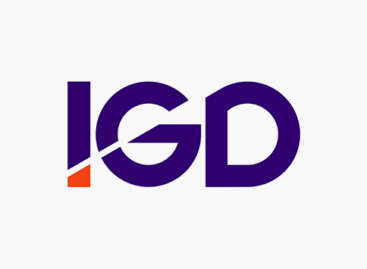Corporate financing: everything for sale!
At the moment, there are no signs of any decline in demand for financing among companies. According to a forecast by MNB, last year’s trend is expected to continue, with demand for credit increasing. The reason for the faster than expected increase in domestic crediting is that companies are replacing credits from foreign sources with domestic financing. Interest margins of domestic credits are decreasing in comparison with inter-bank interest rates and similar credits from the EUR zone. Domestic financing has become relatively inexpensive, compared to foreign financing. However, it is possible that interest rates for both new and existing clients will rise during the year. One of the obstacles in the way of the further expansion of the credit market is limited liquidity among companies. Non-payment is becoming more frequent in both the retail and corporate markets. According to Róbert Nemes, sales director of Erste Bank, their financing practice has not changed, with financing still depending on the financial standing and creditworthiness of companies. SME-s which are open to innovation, flexible and improve their cost-efficiency will remain competitive. Erste Bank has extended its range of services provided formerly only for large companies to SME-s as well. Various treasury services have become popular again and multi-currency services are also available to reduce exchange risks. EU financing is also accessible for SME-s. An EU office has been established by Erste Bank, where consulting services are available for potential applicants, free of charge. Long term financing is offered for clients (CEB, IEB). Erste Bank offers its full range of services including bank guarantees linked to EU financing, factoring and leasing. Macroeconomic changes have made it necessary for banks to tighten their financing policies. However, providing a complete service for SME-s is still a priority for MKB. Crediting in the retail sector has no influence on the availability of financing for SME-s. The mortgage crisis in the US has had no direct effect on the Hungarian banking sector and its indirect effects have been minimal. Credit applications by SME-s are assessed individually, and financing is provided for enterprises with adequate prospect in the usual way. The corporate division of Budapest Bank (GE Money Bank) has succeeded in increasing its market share to over 12 percent, during a recession. As a result of 24 percent growth produced last year, credits for SME clients have reached HUF 342,7 billion. – Budapest Bank is focusing on the SME segment primarily, which means we don’t have much contact with the traditional FMCG sector – says Zoltán Boldis, business development director of the corporate division of a Budapest Bank. Total financing under the Budapest Business Card grew by 50 percent in 2007, with mortgage credits for SME-s increasing by 28 percent. Budapest Bank accounted for 20 percent of successful applications for EU financing by SME-s in 2007, while its market share in factoring was 3 percent, as a result of 120 percent year on year growth.
Related news
Related news
Waves in the company trend – the changing faces of liquidations and company formations
Even with decreasing terminations, decreasing numbers of companies in the…
Read more >IGD: Retail media and increased efficiency will be important in 2024
This article sets out to summarise the retail trend predictions…
Read more >Domestic businesses are planning cautiously but consciously – VOSZ Barometer business sentiment analysis – Q1 2024
Uncertainty is still strongly felt in the business mood of…
Read more >



